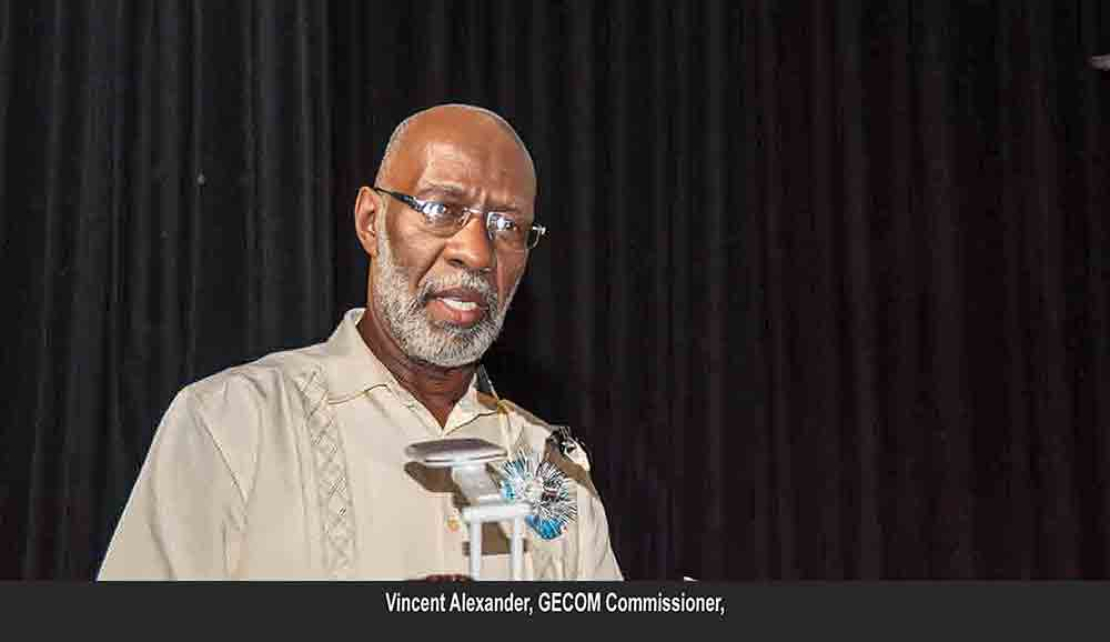GUYANA | GECOM Chair Rejects Biometric Voting for 2025 Elections

GEORGETOWN, January 17, 2025 - In a decision that has intensified Guyana's electoral reform debate, Elections Commission Chair retired Justice Claudette Singh has ruled against implementing biometric voting for the 2025 General and Regional Elections, despite mounting pressure from opposition parties and civil society groups to modernize the country's voting system.
The ruling, delivered less than a year before the elections, effectively shelves long-standing demands to address what critics call a "ghost voter" problem – the alleged phenomenon of deceased persons appearing on voter rolls.
Singh cited time constraints and logistical hurdles as insurmountable barriers to implementing the system before the upcoming elections.
"We would still have to do major things," the GECOM Chairman explained, outlining a lengthy list of prerequisites including stakeholder consultations, parliamentary approval, equipment procurement, staff training, and public education campaigns.
The decision has drawn sharp criticism from opposition figures who see it as a missed opportunity to enhance electoral integrity.
The controversy has deep roots in Guyana's recent political history. The push for biometric voting gained momentum after the 2015 elections when the then-opposition People's Progressive Party Civic (PPP/C) advocated for a cleaned voter list and biometric identification.
The call was later echoed by their political rivals, the A Partnership for National Unity and Alliance for Change (APNU+AFC), following the contentious 2020 elections.
Among the most vocal critics is GECOM Commissioner Vincent Alexander, who has taken an uncompromising stance on the issue.
In a strongly worded letter to the editor, Alexander declared biometric verification should be "a pre-condition for the conduct of any future election," a call directly ignored by Claudette Singh in her decision.
 Alexander's criticism extends beyond the immediate ruling. He earlier took aim at Attorney General Anil Nandalall over what he claims are "thousands of verifiable cases of alleged impersonation" documented since August 2022.
Alexander's criticism extends beyond the immediate ruling. He earlier took aim at Attorney General Anil Nandalall over what he claims are "thousands of verifiable cases of alleged impersonation" documented since August 2022.
"There is implied complicity on the part of those who attempt to nullify these issues," Alexander charged, suggesting a deeper institutional resistance to electoral reform.
The opposition's frustration is further fueled by what they perceive as GECOM's bureaucratic foot-dragging. Despite earlier commitments to conduct feasibility studies on biometric implementation.
Opposition commissioners claim they've been shut out of meaningful discussions on the matter. The Commission's approach to these studies, they argue, has effectively served as a roadblock rather than a pathway to modernization.
Justice Singh's ruling appears to have done little to bridge the yawning divide between electoral officials and reform advocates.
Critics view her decision as more than a mere administrative choice, characterizing it as another example of the Commission voting in lockstep with the ruling PPP party while sidelining civil society's calls for more robust electoral safeguards.
The implications of this decision extend beyond the immediate electoral cycle. While GECOM's ruling may have temporarily settled the administrative question of biometric voting for 2025, it has intensified rather than resolved the underlying debate about electoral integrity in Guyana.
As the country moves closer to its next electoral test, the question remains whether traditional voting methods can maintain public confidence in an era of increasing demands for technological verification.
-30-
